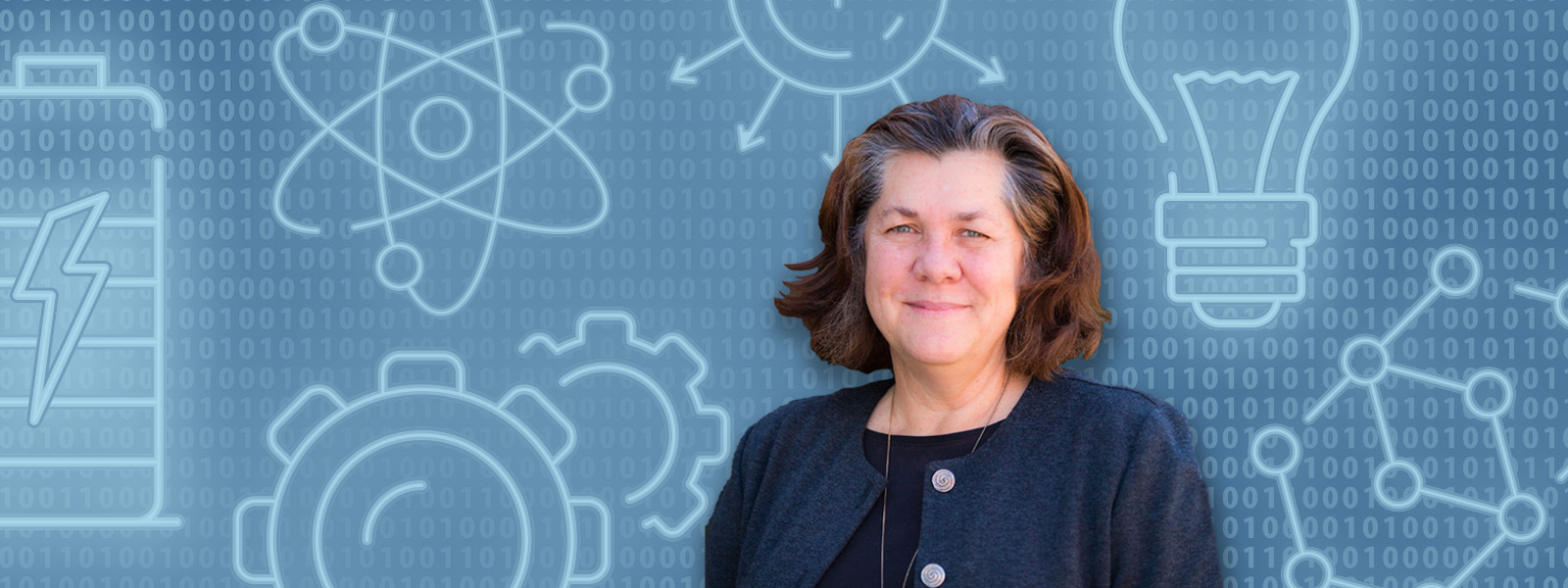As a veteran educator, inspiring, empowering and charting a pathway to success for students is something Nancy Ruzycki, Ph.D., instructional associate professor in the Department of Materials Science & Engineering, has been doing for decades. Now, on the heels of her EQuIPD Grant success, Dr. Ruzycki is launching a middle school summer camp geared to expand the presence of underrepresented students in engineering and computer science.
With the help of a $200,000 gift from alumnus Arnold Goldberg (B.S., Computer Science ’90), the Goldberg Gator Engineering Explorers Science Camp aims to shine an early spotlight on Florida middle-schoolers’ potential as future engineers by enhancing their science, technology, engineering and math (STEM) skills and providing a learning environment filled with role models.
Goldberg is currently a Vice President/General Manager at Google and has worked at tech giants such as PayPal, Box, LinkedIn and eBay during his career.
“During his tenure in Silicon Valley, one thing that became apparent to him was the distinct lack of women and minority groups in his field of computer science (CS) and in STEM, in general. With the current demand for CS skills and the focus on diversity hires in that space, there was clearly a chance to create more career opportunities for them,” Dr. Ruzycki said. “With this gift, his focus is on providing these students every opportunity to develop the foundational skills that can open a wide range of STEM career paths for them.”
After meeting with Goldberg, Dr. Ruzycki designed a program that could be easily replicated and yet tailored to the localized communities where camps will be offered. And given the established links she has with various districts from her EQuIPD experience, coupled with relationships nurtured through UF’s Innovation Stations, she was able to quickly identify regions where she could launch the program this summer.
“When putting this together, we focused on Arnold’s goals of teaching computational thinking and engineering design thinking and building middle school student knowledge for foundational programming skills through engaging, collaborative, hands-on design activities,” Dr. Ruzycki said. “The students engage in a design activity and then work with an industry mentor as part of a team to solve a problem or actuate a task. The mentors in the camp are matched to the school’s student demographics so that participants can “see their future.”
In addition to computational and system thinking, the five-day camp is designed to teach the students about skills and concepts such as coding and programming, process mapping, collaboration, troubleshooting/debugging, constructive feedback, project management and real-world communication practices.
“We know that increasing children’s early exposure to engineering and computer science learning opportunities, both in and out of school, helps to attract more individuals to STEM careers,” Dr. Ruzycki said. “The camp is a rigorous and fun summer experience created to help build a conduit to success for students interested in engineering and computer science – particularly those groups traditionally underrepresented in STEM-related fields.”
As a part of the Herbert Wertheim College of Engineering’s K-12 outreach efforts coordinated through UF’s Innovation Stations, the program aims to engage 7th and 8th graders from around the state of Florida through challenging educational activities not commonly available in their curricula. As a Gator Engineering Explorer, participating students will be able to envision their futures by weighing engineering or computer science as career choices and build lasting relationships with one another and UF.
“What we’re doing is about so much more than teaching these students how to build a project over a summer break. We’re surrounding them with mentors and peers who look like them, people in whom they can see themselves as scientists and engineers,” Dr. Ruzycki said. “We’re showing them that this is something within their reach. It’s really about an investment in the future of these students and in the future of technology in Florida.”

